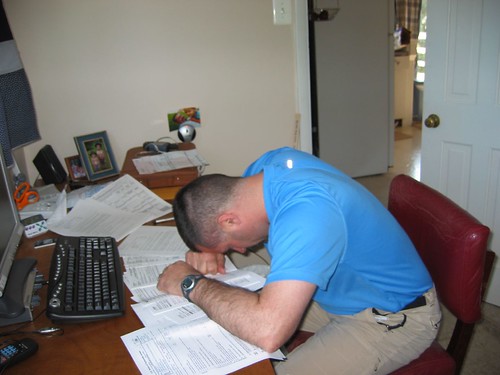I’ve seen a lot of stories in the news lately about tax preparer fraud. The IRS is catching these folks and they’re going to jail. That’s a good thing in my opinion. Those of us with licenses and who play by the rules really hate the crooks; they’re bad for business.
The IRS tried to regulate preparers by setting up the Registered Tax Return Preparer (RTRP) designation. I made all my employees take (and pass) the test as a condition of employment, but the RTRP requirement was thrown out in court so anybody can hang up a shingle saying they’re a professional tax preparer and they don’t need to do didly squat to prove they’re competent.
So how do you tell if the person you’re hiring to do your taxes is legit or not? I was recently asked that question at a panel discussion about Enrolled Agents on the web the other day. The feedback I was getting from the non-tax preparers is that they don’t know what questions to ask, or what to look for when hiring a preparer.
Enrolled Agents are licensed by the Department of the Treasury to represent taxpayers before the IRS. That means we are hired by and work for citizens to help them with their IRS issues. We do not work for the IRS. CPAs and attorneys are also allowed to represent citizens before the IRS; they are licensed by their respective states. EAs are federally licensed.
So, being an EA, I’m going to recommend you hire an EA. My buddy the CPA will say to hire a CPA. And I’ve got a couple of tax preparer friends who don’t have any initials after their names that, to be perfectly honest, are really good tax preparers. But the biggest issue I think a regular person has to be aware of is—how do you know the person you hired isn’t a fraud?
Face it, I can tell you I’m an EA until I’m blue in the face, but how do you know? Ask to see my license! Oh sure, I’ve got a nice little document hanging on my wall. I got that back when I first became an EA. But EAs need to renew their licenses every three years. You want to take a look at the license I keep in my wallet. (I’m not going to post it online to prevent some fraud monster from copying it.)
Another way to check out a preparer is to go online and look them up. You can check on an EA by going to the National Association of Enrolled Agents website: https://portal.naeacentral.org/webportal/buyersguide/professionalsearch.aspx
If you want to check out a CPA, you can find out their status at CPA verify: http://www.cpaverify.org/
One thing that everyone who prepares returns professionally must have is a PTIN number, that’s a Preparer’s Tax Identification Number. Anyone who gets paid to prepare tax returns must use one of these numbers when preparing your return. You can check on a PTIN number by checking out this directory: http://www.ptindirectory.com/ the big problem with that directory is that if the preparer hasn’t enrolled in it, she won’t be listed. Now, the IRS is supposed to have their own directory, but they charge you $35 and they send you a CD, so that’s really not a user-friendly option.
It’s important to know that non-paid preparers, like the volunteers at VITA or AARP, do not have to use a PTIN on your tax return. So if you’re using one of those services and there’s no PTIN number on your tax return, that’s okay. VITA does have a pretty decent training program for its volunteers.
This is important: If you pay someone money to prepare your taxes and there’s no PTIN number for the preparer down by the signature line—Walk away and do not pay for the return. That’s the number one sign of tax fraud. The PTIN is the IRS’s way of keeping track of tax preparers. Anyone not using a PTIN is hiding something.
Here’s another thing to watch out for: If your preparer promises you a big refund before she even sees your paperwork. How can they know how much you’ll get back if they haven’t even looked? That’s another deadly warning.
Another big fraud scam is when they say they can get you money for something you haven’t done: for example—college tax credits. That’s the most recent scam that tax preparers went to jail for in my city.
What’s scary is, I think I spoke to one of their clients on the phone last year. I received a call from a fellow asking me what I’d charge to do a tax return with a college tax credit. I asked the man a few questions about his return and I realized that he didn’t qualify for a college tax credit—and I told him so. He didn’t seem to care he just wanted me to prepare the return, claiming the illegal credit, and charge less than the other guy who told him about the scheme. I told him I wouldn’t do that return for him. I’m not sure who he had gone to, but at least one group of preparers is now going to jail for illegally preparing returns claiming credits. http://www.stltoday.com/news/local/crime-and-courts/owner-of-st-louis-mo-money-tax-prep-franchise-pleads/article_804ad59d-d455-5865-a2f8-28b15a49d6fd.html
So, here’s my best piece of advice: if a tax preparer tells you that you can get money back for something you know isn’t true, DON’T DO IT! You could wind up in big trouble, and your preparer could wind up in jail.


